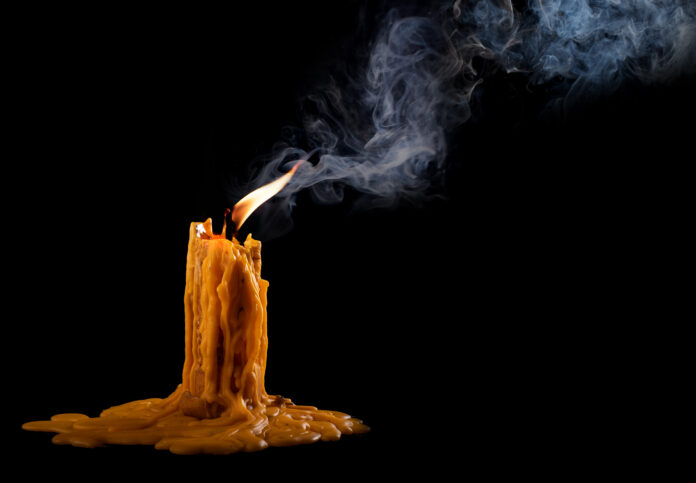The dean of Machon Sara Schenirer Beth Jacob Jerusalem (BJJ), the nifteres was the only child of Rav Yitzchok Hutner, zt”l, and the wife of Rav Yonason David, shlita, the rosh yeshivah of RabbeinuChaim Berlin in Flatbush and Yeshivas Pachad Yitzchak in Har Nof
Sadness reverberated throughout the Torah world on Chol Hamoed Pesach as news of the passing of Rebbetzin Bruria David spread. An esteemed mechaneches for over 60 years, she mentored thousands of talmidos and future pedagogues, rebbetzins, teachers and Torah-true wives and mothers.
Rebbetzin David’s influence on the frum world in general and the yeshivah community in particular was enormous. She was the dugmah chayah for generations of women who played critical roles as prominent educators and leaders all over the world. She also exemplified the standard of an eishes chaver as the wife of Rav Yonason David, a renowned gadol baTorah and baal machshavah.
Rebbetzin David’s leadership and teachings left profound and lasting impressions on her students that have not abated even many years after they have left her keep. In order to present the impressions that Rebbetzin David made on so many as accurately as possible, we spoke to numerous people whose lives she greatly impacted and who carry with them her teachings, lessons and mantras every day. We spoke with an array of former students who are now mothers, grandmothers and even great-grandmothers. Every one of these accomplished women was apprehensive about attempting to accurately convey lessons, impressions, teachings and growth that could only be experienced in person. The lessons of emes and authenticity that Rebbetzin David taught and practiced still lives within them. They had learned from her the value of truth and the futility of trying to use human speech with its inherent limits to express deep ideas and feelings.
Over the years, many people had approached the Rebbetzin about publishing a biography about her illustrious father, Rav Yitzchok Hutner. Every single request was rejected, on the grounds that biographies are almost always not the emes. People sometimes misinterpret the actions of the subject. Other times, such accounts are filled with exaggerations or fail to do the person justice. Reflecting that hesitancy, her talmidos wanted to pay tribute to her by accurately conveying her strongly-held beliefs and hashkafos without resorting to hyperbole or selling her short. Throughout this article, we will include many anecdotes and quotes. Any mistakes or inaccuracies are solely due to human error in our reportage.
Early guidance
Rebbetzin Bruria David was born in 1938 to her parents Rav Yitzchok and Masha Hutner and was their only child. In the Sefer Hazikaron of Rav Hutner there is a section of zichronos with quotes from a letter he wrote to his daughter describing some of the goings-on at the time of her birth, along with his view on chinuch habanos:
“When our friends bentched me with a mazel tov on the occasion of your birth, there were some who had a laugh at my expense. They thought I had some feelings of disappointment because the child who was given to me was a daughter and not a son. For posterity, I am now going to write what I answered them: ‘Every child who is granted to parents presents a nisayon for them. If the parents implant the holiness of a life of Yiddishkeit in their children’s hearts, we can then say that they withstood the nisayon… And since we know based on experience that guiding a daughter along our holy path is a much more difficult mission than raising a son to Torah, chuppah and maasim tovim, you will therefore find that the birth of a daughter places the parents in a more difficult position than the birth of a son. I am therefore happy that I was given the more difficult of these two tests.’
“I ask that you etch these words into your memory: The women who are renowned for praise and illustriousness fall into two categories. The first consists of women who were renowned because of their own greatness, and the second consists of those who were renowned due to their exceeding excellence in being a lifelong helper to their great husbands. In my eyes, the ideal is a combination of the characteristics of these two categories. Meaning, a great woman in her own right who also excels as a helper to her husband. The fulfillment of this ideal requires three conditions: 1) that she be a great woman in her own right, 2) that she have a husband who is greater than she is, and 3) that she place her innate greatness at the service of the fulfillment of her husband’s aspirations.”
Rebbetzin David not only inculcated this message and fulfilled her father’s vision for her, but she also instilled this ideal into her countless students.
Bais Yaakov Esther Schoenfeld on the Lower East Side
Rebbetzin David joined the ranks of mechanchos in the 1960s and founded a teachers seminary as an extension of the existing Esther Schoenfeld High School on the Lower East Side.
A mechanech with over 60 years of experience who frequently consulted the Rebbetzin shared that her influence could be seen very quickly across the entire chinuch landscape:
“Rebbetzin David didn’t just make it acceptable for girls to marry bnei Torah; she made it chashuv and desirable for Bais Yaakov girls to marry metzuyanim. She once said that the distinctiveness of klal Yisrael is that they turn their backs on the rest of society. When a woman gets married, she becomes assur k’hekdesh. The same dynamic occurred when the Yidden accepted the Torah at Har Sinai. We became dedicated to Hashem’s Torah to the exclusion of everything else.”
The founding of Beth Jacob of Jerusalem
In the early ’70s, Rav Yonason and Rebbetzin David were preparing for their upcoming move to Eretz Yisrael together with Rav Hutner, who was opening a yeshivah there. They were also traveling there to establish a girls’ seminary. Although going to learn in Eretz Yisrael was something that was done by boys in those days, there was no seminary for American girls, and there was no demand for one either. Opening one was considered an ambitious move. The new seminary was called Machon Sara Schenirer, more commonly known as Beth Jacob of Jerusalem (BJJ).
Over the years, it would come to be known as the preeminent educational institution in the Bais Yaakov world, and it remains the standard bearer today. Outstanding students from a wide spectrum of backgrounds sought out the tutelage of Rebbetzin David. Unique yet grounded in tradition, rigorous yet infused with dedication and warmth, the experience of studying at BJJ was one that instilled young women with a Torah worldview and values for life. “Even now, decades later, so many of my decisions are based on what Rebbetzin David would have thought of them, whether it involves hashkafah or purchasing a new dress,” one student told us, a sentiment echoed by many.
From the start, Rebbetzin David had a vision for the school. “There were certain qualities she was looking for in teachers,” she continued. “Of course, they had to be experts in the subjects they taught. But they also had to be extremely well versed and educated in other topics, as she wanted them to be well rounded. She looked for dedication to their craft and to their students, as well as loyalty.”
When she advised someone who was opening a seminary program in the United States, she stressed that it was important to only hire teachers who were married to talmidei chachamim, explaining that they had to be rooted in the right mesorah and not develop their own ideas.
When it came to what she was looking for in students, however, their background wasn’t high on her list of priorities. “The two main questions were if the girl was a machnia, meaning that she would subjugate herself to her teachers and ‘shtel tzu,’ and she also wanted to know if she was a mevakesh.” And while she placed a value on good grades, they were only an indicator of a student’s potential. “If she felt that she could mold this person and that she could grow and develop in the seminary, she would accept her.”
BJJ always had a surprisingly diverse student body. “Rebbetzin David wasn’t looking for a finished product. Her tafkid was to mentor future n’shei chayil. Thanks to her broad vision, she reached students from all backgrounds who became mechanchos in their respective communities, all of whom owe her a huge debt of gratitude.” She used to marvel about the progress a certain community made from being a more secular one to morphing into a large Torah-true community with yeshivos and kollelim. “Whenever she asked about progress in our community, I told her that she had played a significant role in its success.”
To read more, subscribe to Ami





















